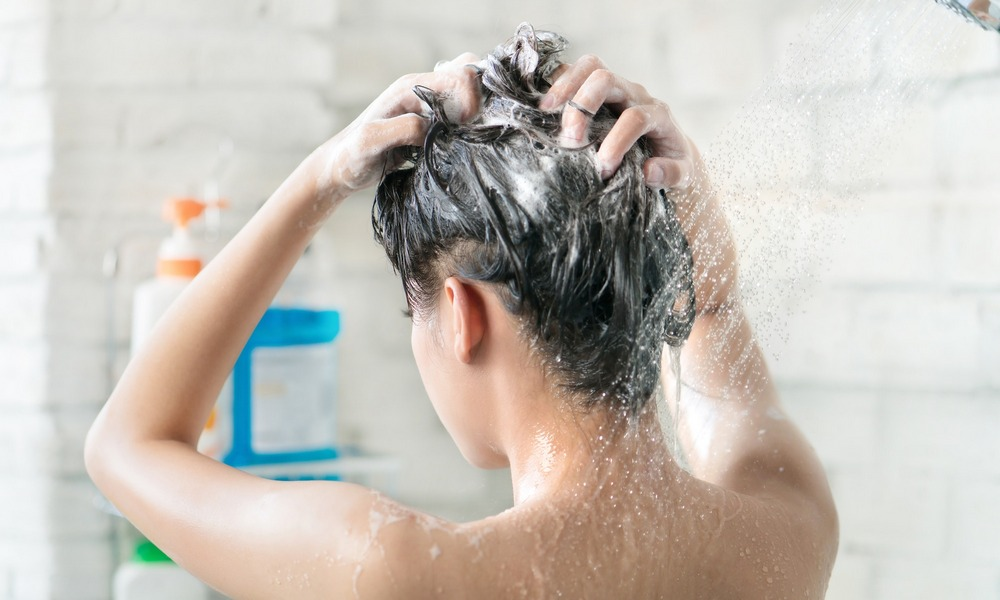When it comes to personal grooming, hair washing is a ritual steeped in habits and often influenced by prevailing beauty standards. However, there’s no one-size-fits-all answer to the question of how long you should go without washing your hair. The frequency with which you should wash your hair depends on multiple factors, including your hair type, scalp health, lifestyle, and personal preference. This article aims to explore these factors and provide guidance to help you determine your optimal hair washing schedule.
Understanding Your Scalp and Hair Type

Your scalp and hair type are critical in deciding how often to shampoo. Sebum, produced by your scalp, is necessary for healthy hair but can lead to a greasy appearance if not managed correctly. For instance, those with oily hair may need to wash more frequently, while those with dry or coarser hair might go longer between washes. It’s essential to know where you fall on this spectrum.
Different hair types such as straight, wavy, curly, and coily have unique needs when it comes to washing frequency. Textured and curly hair types typically require less frequent washing than straight hair due to sebum traveling slower down the hair shaft. If you have color-treated hair, washing less often can also help maintain your color vibrancy longer.
Decoding the Ideal Hair Washing Schedule

Finding the perfect balance for hair washing can be tricky. While dermatologists and hair care experts offer guidelines, individual needs vary. Observing how your hair responds to washing and adjusting the frequency accordingly is essential for maintaining healthy hair. If your scalp feels itchy or your hair becomes limp, it might be time to switch up your routine.
Here are advisable washing intervals according to hair type:
- Oily hair: Every other day to daily
- Normal hair: Every two to three days
- Dry hair: Once a week
- Combination hair: Tailor based on dry or oily areas
Keep in mind these are guidelines and you should always pay attention to how your hair behaves to fine-tune this schedule.
The Role of Personal and Environmental Factors
Your lifestyle plays a pivotal role in determining how often you should wash your hair. For example, those engaging in daily workouts may need to wash more frequently due to sweat. Additionally, the environment you live in—be it humid, polluted, or dusty—can affect how quickly your hair gets dirty.
Let’s not forget hair products and styling practices. Heavy use of styling products or tools can lead to product buildup or damage, requiring more regular washing or treatment.
Tips for Extending the Time Between Washes
There are ways to extend the life of your hair between washes without compromising on hygiene. Developing a routine that minimizes oil and product buildup can greatly increase the time needed between washes. Here are a few strategies:
- Use dry shampoo to absorb excess oils.
- Opt for loose hairstyles to minimize scalp sweating.
- Rinse your hair with water on non-wash days if needed.
Special Considerations for Colored and Chemically Treated Hair
Colored or chemically treated hair warrants a modified washing approach. These hair types are often more porous and prone to dryness, so overwashing can lead to faster fade and additional damage. Here is a table outlining adjusted washing frequencies for treated hair:
| Hair Treatment | Suggested Washing Frequency |
|---|---|
| Color-Treated | Every 3-4 days |
| Keratin Treatments | Once a week or as advised by stylist |
| Permed or Relaxed Hair | Every 5-7 days |
Conclusion: Finding Your Personal Hair Washing Balance
Ultimately, the frequency of hair washing is highly personal and varies from one individual to another. It’s essential to consider all factors, from your hair type and lifestyle to your aesthetic preferences, before settling on a routine. Remember, what works best is what leaves your hair feeling healthy and suits your daily life best. Experiment, adjust, and find the schedule that brings out the best in your hair.
FAQs: Hair Washing Frequency Answered
- Is it possible to train your hair to be washed less often?
Yes, by gradually extending the time between washes and using the right products, your scalp can adjust oil production, reducing the need to wash frequently. - How do I know if I’m washing my hair too often?
Signs of overwashing include dry, brittle hair, an itchy or irritated scalp, and fading hair color. Reducing washes and using a milder shampoo can help restore balance. - Can skipping hair washes cause any scalp infections or problems?
Though uncommon, neglecting hair hygiene for extended periods may contribute to scalp conditions, such as dandruff or dermatitis, in predisposed individuals. - Is it bad to wash your hair every day?
For most people, daily washing is unnecessary and can strip hair of natural oils. However, those with very oily scalp or heavy exercise routines may need more frequent washes. - What’s the best way to maintain hair hygiene between washes?
Use dry shampoo, adopt updo hairstyles, rinse with water, maintain a healthy diet, and minimize heat styling to keep hair fresh and extend time between washes.



